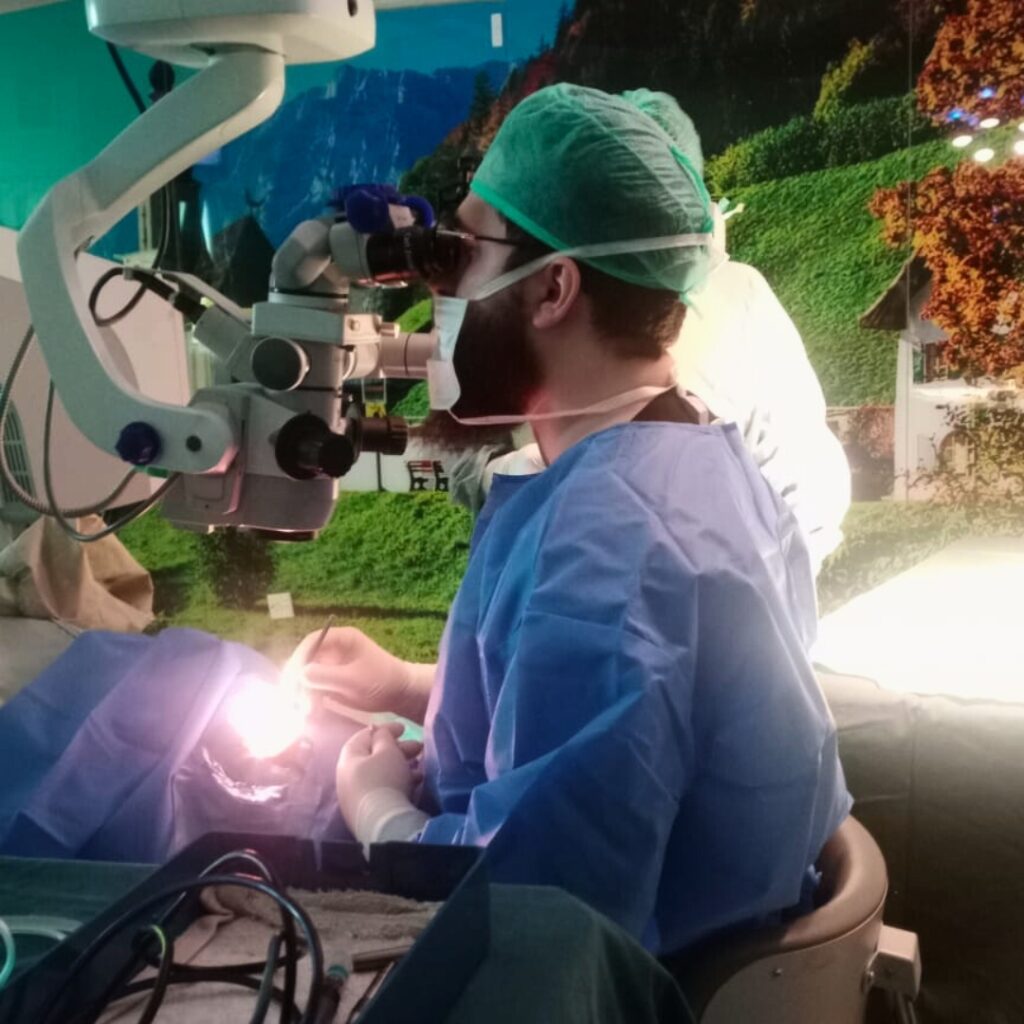Pediatric Cataract Surgery
Lahore Laser Eye Center is renowned as the premier eye center in Lahore, Pakistan, offering exceptional eye care services. With a team of highly skilled ophthalmologists and state-of-the-art technology, they offer the best possible care for patients seeking pediatric cataract surgery.
Pediatric Cataract Surgery
Pediatric cataracts, although relatively rare, can have a significant impact on a child’s visual development and overall quality of life. Fortunately, pediatric cataract surgery has evolved to become a safe and effective procedure that can restore vision and enable children to thrive. In this article, we will explore the world of pediatric cataract surgery, its unique considerations, and the transformative effects it has on the lives of young patients.
Understanding Pediatric Cataracts: An Obstacle to Clear Vision
Pediatric cataracts occur when there is clouding of the lens in the eye of a child. This condition can be present at birth (congenital) or develop during early childhood. Pediatric cataracts may be caused by genetic factors, certain infections, trauma, or metabolic disorders. If left untreated, they can lead to amblyopia (lazy eye), nystagmus (involuntary eye movements), and delayed visual development.
Pediatric Cataract Surgery: Guiding Young Eyes towards Clarity
Pediatric cataract surgery is a specialized procedure that involves removing the clouded lens and replacing it with an artificial intraocular lens (IOL). The goal of surgery is not only to restore clear vision but also to promote optimal visual development during the critical period of childhood.

Key Considerations for Pediatric Cataract Surgery
Early Detection and Diagnosis: Prompt diagnosis of pediatric cataracts is crucial to prevent potential vision-related complications. Pediatricians, ophthalmologists, or pediatric ophthalmologists are involved in identifying and assessing cataracts in children.
Individualized Treatment Plans: Each child’s case is unique, and the treatment plan is tailored to their specific needs. Factors such as age, severity of the cataract, overall eye health, and potential underlying conditions are taken into account when planning the surgery.
Anesthesia and Pediatric Care: Pediatric cataract surgery is typically performed under general anesthesia to ensure the comfort and safety of the child. An experienced pediatric anesthesiologist and a specialized surgical team work together to provide optimal care throughout the procedure.
Intraocular Lens Implantation: The selection of an intraocular lens (IOL) depends on the child’s age, eye anatomy, and visual goals. In some cases, a primary IOL may be implanted, while in others, a secondary IOL or contact lenses may be used. The goal is to provide the child with the best possible visual outcome and long-term visual development.
Amblyopia Management: Treating pediatric cataracts goes beyond the surgical procedure. Amblyopia, which can develop due to visual deprivation, is often addressed through post-operative care, including patching or using eye drops to encourage the brain to prioritize the vision in the operated eye.
Advancements in Pediatric Cataract Surgery: Precision and Optimized Outcomes
Advancements in technology and surgical techniques have significantly improved the outcomes of pediatric cataract surgery:
Microincision Cataract Surgery: The use of smaller incisions reduces the risk of complications and accelerates the healing process in pediatric patients.
Intraoperative Imaging: Real-time imaging techniques aid surgeons in precise visualization during surgery, ensuring the accurate placement of intraocular lenses.
Secondary IOL Options: In cases where primary IOL implantation is not possible, secondary IOLs or contact lenses can be considered to promote visual development.
Illuminating a Bright Future: Life after Pediatric Cataract Surgery
Pediatric cataract surgery offers numerous benefits that positively impact a child’s life:
Restored Visual Clarity and Development: By removing the cataract and implanting an artificial lens, pediatric cataract surgery restores clear vision and enables proper visual development during the critical period of childhood.
Enhanced Educational Opportunities: Improved vision allows children to excel in school, participate in activities, and reach their full potential academically and socially.
Improved Quality of Life: The surgery helps children gain independence, improve motor skills, and engage fully in daily activities, sports, and hobbies.
Dr. Hamza Ali Tayyab, an esteemed pediatric cataract surgeon, is recognized for his expertise and exceptional patient care at Doctors Hospital and Medical Center in Lahore. With extensive experience in the field, Dr. Tayyab is known for his precision, skill, and commitment to providing the best possible outcomes for his patients. If you are seeking top-notch cataract treatment, don’t hesitate to book an appointment with Dr. Hamza Ali Tayyab and benefit from his unparalleled expertise.
Call us for an appointment
0326-3777752
Feel free to contact us.
info@lahorelasereyecenter.com
Reach to us via our location
View Map
